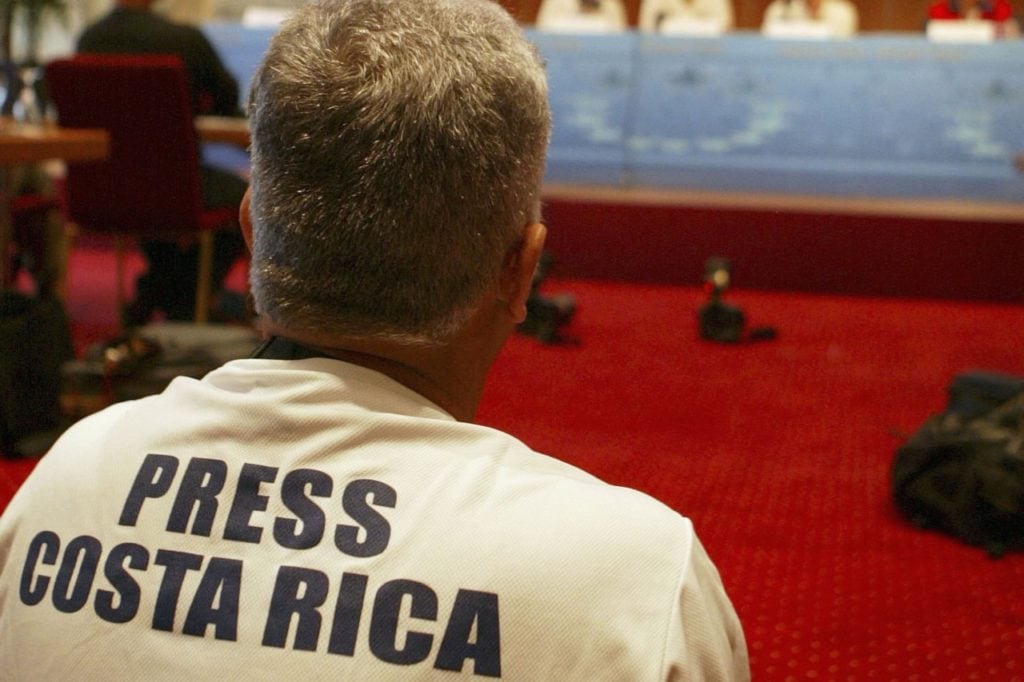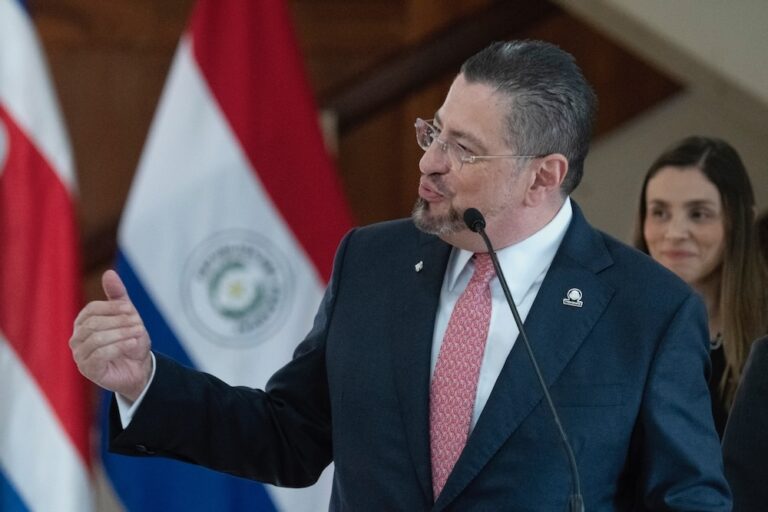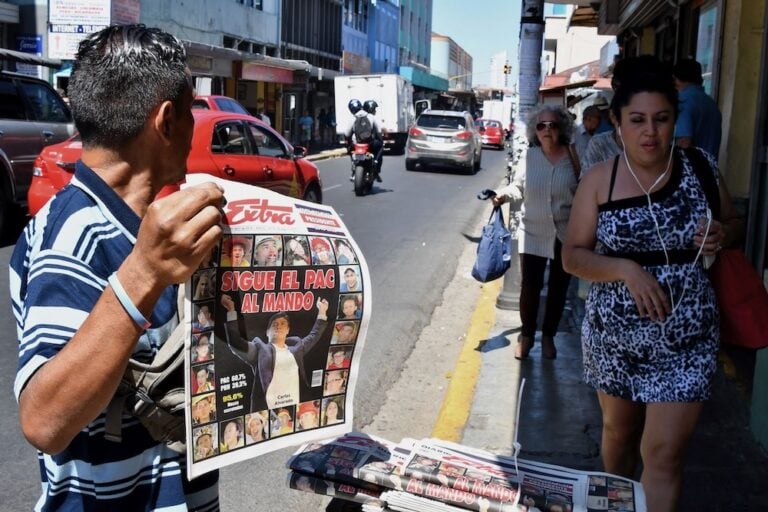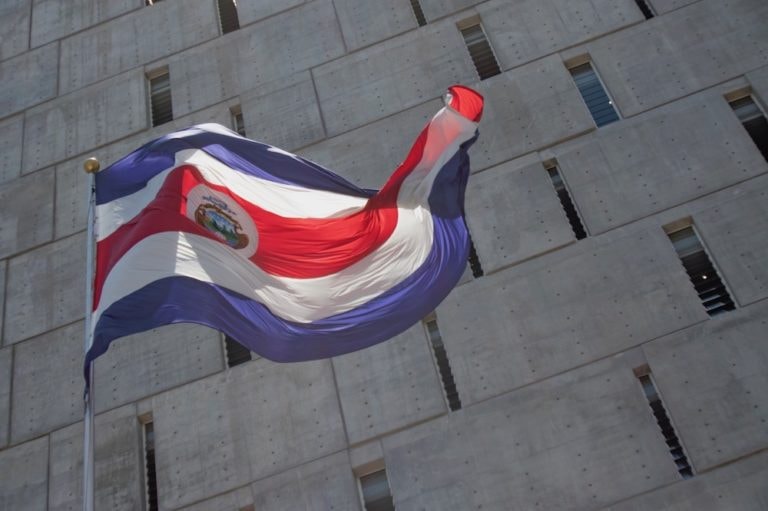According to Ignacio Santos, director of "Telenoticias," Teletica's daily news program, the station has a history of receiving threats, mainly focused on past investigative reporting by him and his team.
This statement was originally published on cpj.org on 30 July 2019.
Costa Rican authorities must fully investigate the detonation of an explosive device outside the San José offices of television station Teletica and hold those responsible to account, the Committee to Protect Journalists said today.
A group of unidentified attackers blew up a makeshift explosive device outside the main offices of television station Teletica in San José, the capital, at around 11:30 p.m. on July 27, according to the outlet. Security camera footage released by the station shows three unidentified individuals crossing the street and placing the explosive on the ground, in front of the building. Two minutes after placing the explosive, the men leave the scene, and the device explodes, breaking a glass wall in Teletica’s office, according to the video footage. No one was injured in the attack, according to the report.
An investigative team from the national police, or Judicial Investigation Organization (OIJ), came to the premises about an hour after the event and announced it was working on the case, according to the daily newspaper La Nación.
“Costa Rican authorities must conduct a thorough investigation into this alarming attack and ensure that Teletica staff have sufficient protective measures to do their jobs safely,” said CPJ South and Central America Program Coordinator Natalie Southwick in New York. “Finding and punishing the perpetrators is the only effective way to prevent further attacks on the press.”
According to Ignacio Santos, director of “Telenoticias,” Teletica’s daily news program, the station has a history of receiving threats, mainly focused on past investigative reporting by him and his team. The OIJ has investigated about 15 threats to the program and individual journalists in the past year, Santos told CPJ.
“This time, for the first time in the history of the news show and the channel, a threat became a tangible action,” Santos said. The journalist said the device–made from a fire extinguisher filled with explosives and an electronic device for delayed detonation–was “unique.”
While the OIJ has not announced any official lines of investigation, the investigators “have found several links that can connect the attack with one that occurred on June 26 at the Legislative Assembly, when three men detonated an explosive in a window of the office of Deputy Zoila Volio,” said OIJ director Walter Espinoza in a press conference published on the official YouTube account yesterday.
In response to a request for comment, the OIJ referred CPJ to Espinoza’s press conference.
Teletica, founded in 1958 as Costa Rica’s first television company, is one of the country’s main national TV stations. The broadcaster operates cable company CableTica and two national TV channels, Teletica Canal 7 and Teletica Canal 33.
Costa Rican President Carlos Alvarado condemned the act on his Twitter account. “I vehemently condemn what happened at Teletica. A few cannot intimidate a country to move forward and silence freedom of expression,” Alvarado wrote.
Santos said he viewed the attack as “an isolated event” and celebrated the cohesion and support he has felt from many sectors of Costa Rican society.
“This does not represent the people of Costa Rica; there is enormous support of the press in general. They have managed to unite the Costa Rican press now more than ever,” Santos said.
The Costa Rican Association of Journalists and Communication Professionals (COLPER) condemned the attack. “COLPER will continue its work of defending an independent press that carries out its work without any pressure. We call on all political actors to condemn this cowardly act,” the group said in a statement published on its official Facebook page.



